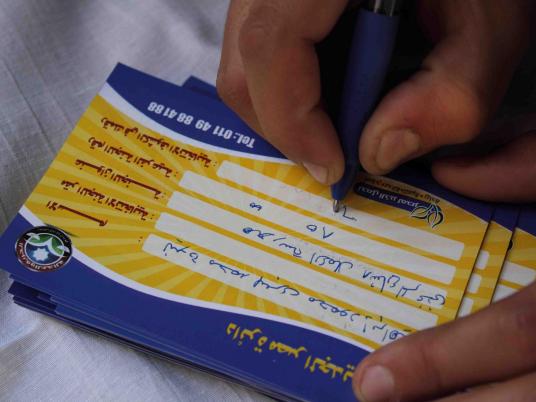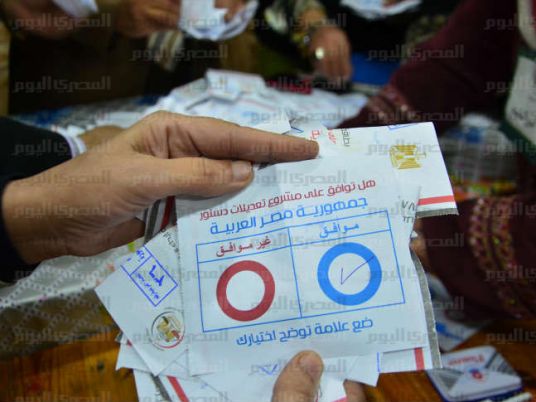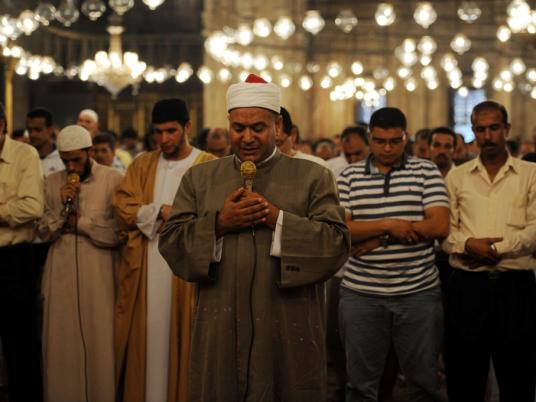
Islamist parties are expected to sweep the first phase of the elections after the run-offs scheduled to take place on Monday.
The Muslim Brotherhood's Freedom and Justice Party (FJP) is leading the polls with around 40 percent of the vote, according to a statement issued by the party on Saturday.
So far two FJP candidates have won seats in the constituencies allocated for individual candidates by getting over 50 percent of the votes in those areas. Two non-FJP candidates have also won individuals seats, the nationalist Mostafa Bakry and the liberal Amr Hamzawy, in Cairo.
Two-thirds of the parliament's 498 seats will go proportionately to party lists, with the rest to individual candidates. In the first phase, there were 3809 candidates representing 36 political parties and coalitions, contesting 168 seats — 56 for individual candidates and 112 seats allocated to the party lists constituencies.
No woman has managed to garner a single seat or even head towards the run-offs.
Moreover, 47 FJP candidates are competing in the run-offs, which is for 52 seats. This figure includes candidates representing the Democratic Alliance, an electoral coalition that gathers the FJP, the Ghad Party, the Karama Party, and eight other small political parties.
The Democratic Alliance has eight candidates in Alexandria, which means they are contesting all four constitutes allocated for individual candidates. It also has five candidates in Kafr al-Sheikh, three in Damietta, six in Fayoum, eight in Assiut, one in Luxor, and one in the Red Sea, in addition to at least nine in Cairo.
They have no candidates in Port Said in the run-offs for the workers' seat, which is contested by leftist candidate Albadry Farghaly and independent candidate Ali Abdallah Hassan.
Port Said has four seats for the party-lists. The FJP headed the polls there, getting 32.5 percent of the vote, followed by the Nour Party (20.7 percent of the vote), the Wafd Party (14 percent) and the Wasat Party (12.9 percent).
It’s noteworthy that the famous anti-Mubarak political activist George Ishak lost the individual seat he competed for by huge tally of votes.
The FJP has the lead in seats allocated for party lists, achieving initial results of at least 30 percent. This is expected to increase after the announcement of the final results of four party list constituencies in Cairo and Alexandria.
The FJP, according to its statement, won 40 percent in two constituencies in Cairo (the results of the other two constituencies have not been announced). The party got 33 percent and 35 percent in Alexandria's two electoral constituencies; 29.5 and 31 percent in Kafr al-Sheikh's two electoral constituencies; and 44.9 percent and 45.7 percent in Fayoum's two electoral constituencies. Its results in the two constituencies of Assiut were 39.5 percent and 32.6 percent respectively, while it won 30.9 percent in Damietta, 32.7 percent in Port Said, 38.5 percent in Luxor, and 35.6 percent in the Red Sea Governorate.
Results of the other parties affiliated with the alliance the FJP belongs to have not been confirmed yet.
Amin Iskander, a Copt and a leading figure in the nationalist Karama Party, is said to have won a seat on the list representing the Democratic Alliance.
The Salafi-oriented Nour Party was second with a surprising 20 percent of votes. The Nour Party achieved its best performance in Damietta. Its party list won 38.7 percent of the votes, according to official results from the High Elections Commission in that constituency. The FJP came second with 32 percent. The Wasat Party achieved 13.6 percent, and the Wafd Party got 4.5 percent.
As for secular forces, the liberal and leftist coalition — the Egyptian Bloc — has come out ahead of the traditional liberal party, the Wafd, by achieving 15 percent.
The Wafd Party's achievement is being contested. Some media sources said it has only won five percent, but the party said on Friday that it had 11 percent of the seats. The party's figure seems likely since it came second and third in lists in some constituencies in Cairo and Alexandria. The party said it had secured five seats in Cairo, three in Alexandria, two in Kafr al-Sheikh, one in Damietta, and one in Assiut.
The moderate Islamic Wasat Party won more than five percent and its strongest performance was in Damietta.
The newly-formed Revolution Continues Alliance — youth parties including socialist, liberal and moderate Islamist parties — achieved around three percent. The alliance got 101,711 votes in Alexandria — its best performance — and was third pace after the FJP and the Nour Party there.
The Adl Party achieved only one percent.
The final allocation of seats will not be clear until January, when the total results of the other lists are declared.
But the 52 seats being contested in the run-offs will strengthen the presence of Islamist parties in the parliament, as they are competing with each other for half those seats.
The FJP is competing against the Nour Party over 24 seats, mainly in the governorates of Alexandria, Kafr al-Sheikh, Damietta and Fayoum. The Nour Party has a total of 26 candidates competing in the run-offs.
But secular forces such as the Egyptian Bloc also have a chance to better their presence if they win some of the seats they are competing for against the FJP in Assiut and Cairo. But more notably, the first constituency in Cairo will see heavy competition, since the run-offs to determine the two individual candidates elected will be a secular-Islamist contest between two FJP candidates against two candidates from the Free Egyptians Party (affiliated with the Egyptian Bloc).




